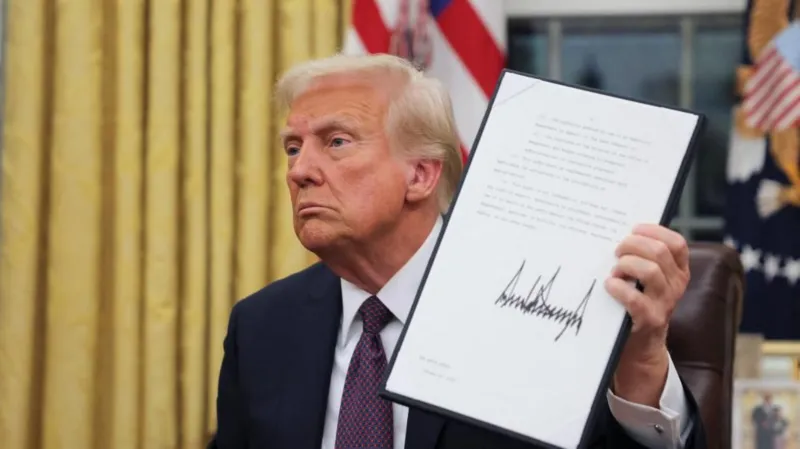In an unprecedented diplomatic move, Germany and France have voiced strong concerns over former U.S. President Donald Trump’s remarks about a potential U.S. acquisition of Greenland, a semi-autonomous territory of Denmark. The comments, which were initially perceived by some as a jest, have since drawn serious scrutiny and elicited critical responses from European leaders, signaling the broader implications of such a proposal on international relations.
German Chancellor Angela Merkel and French President Emmanuel Macron both emphasized the importance of respecting the sovereignty of Denmark and Greenland. Merkel described the idea as “deeply concerning” and warned that such rhetoric could destabilize the long-standing partnership between the European Union and the United States. Macron, in a similar vein, called the proposal “an affront to the principles of modern diplomacy,” adding that territorial sovereignty is “not a commodity to be bought or sold.”
Background to the Controversy
The controversy began when Trump publicly confirmed that his administration had considered the possibility of purchasing Greenland, citing its strategic value and vast natural resources. Greenland, the world’s largest island, has long been of geopolitical interest due to its location in the Arctic and its increasing importance in global climate change discussions.
While Denmark swiftly rejected the notion, calling it “absurd,” Trump’s insistence on the topic and his subsequent decision to cancel a state visit to Denmark exacerbated tensions. Danish Prime Minister Mette Frederiksen referred to the idea as “not something to be discussed seriously,” but stressed the importance of maintaining strong ties with the U.S. despite the disagreement.
European Leaders Unite in Response
Germany and France’s joint response reflects a growing unease among European nations about unilateral moves by the U.S. that could undermine international norms. The two nations have been vocal about preserving multilateralism and respect for international law in the face of what they perceive as increasingly unpredictable U.S. foreign policy under Trump.
In a rare show of solidarity, Merkel and Macron issued a joint statement reaffirming their support for Denmark and Greenland. “The sovereignty of nations and territories is fundamental to global stability,” the statement read. “Any attempts to challenge this principle must be addressed collectively.”
The leaders also expressed concerns about the potential environmental and indigenous impacts of exploiting Greenland’s natural resources. Greenland’s government, which has self-rule in domestic matters but relies on Denmark for foreign policy and defense, has emphasized its commitment to sustainable development and the well-being of its people.
Broader Implications for U.S.-European Relations
This diplomatic row adds to a growing list of disagreements between the U.S. and its European allies during Trump’s presidency, including disputes over NATO funding, trade tariffs, and the withdrawal from the Paris Climate Accord. Analysts suggest that the Greenland episode could further strain transatlantic relations, especially if it is perceived as indicative of a broader disregard for European allies’ sovereignty and interests.
Experts warn that such controversies may also embolden European efforts to reduce reliance on the U.S. in matters of defense and foreign policy. Both Germany and France have already called for greater European strategic autonomy, and incidents like this could accelerate such initiatives.
The Path Forward
While Trump’s Greenland proposal has been widely criticized, it has also highlighted the strategic significance of the Arctic region, which is increasingly becoming a focal point for global powers due to its untapped resources and critical shipping lanes. Both Germany and France have underscored the need for a collaborative approach to Arctic governance, emphasizing cooperation rather than competition among nations.
As tensions simmer, all parties involved will need to navigate the situation carefully to avoid lasting damage to international partnerships. While Trump’s comments may fade with time, the broader implications of such a diplomatic controversy are likely to influence U.S.-European relations for years to come.




















